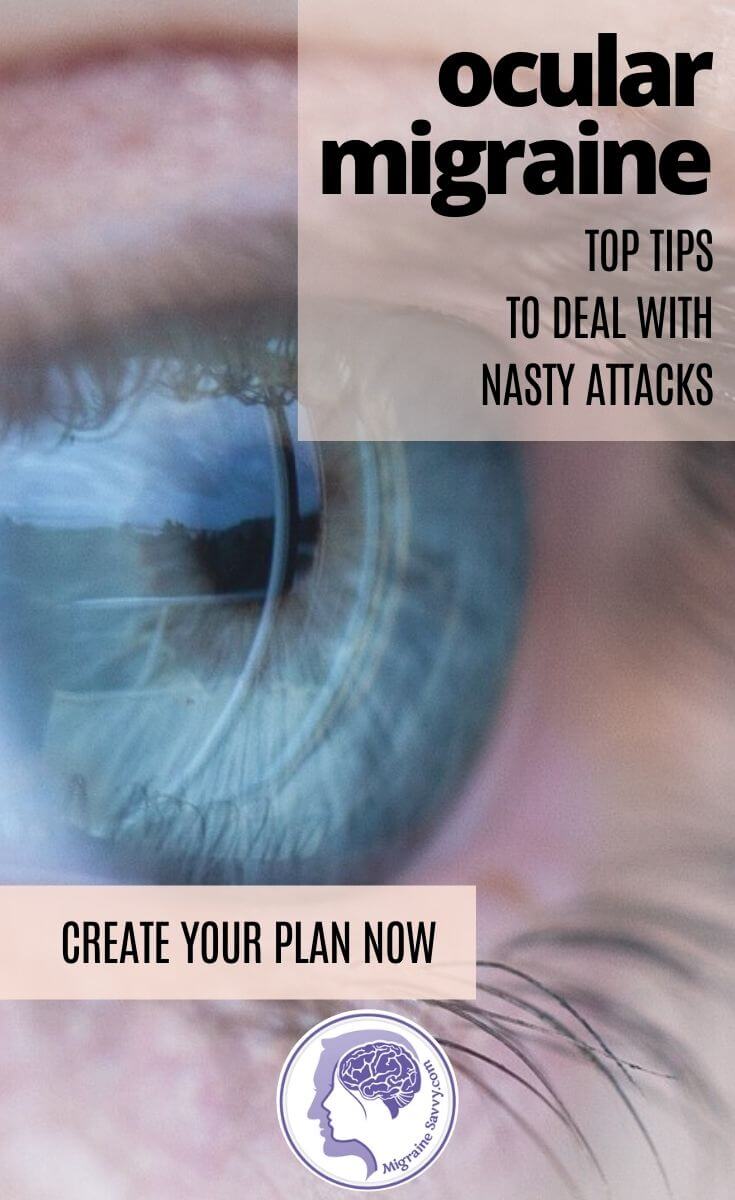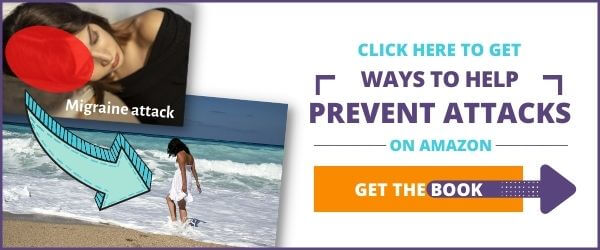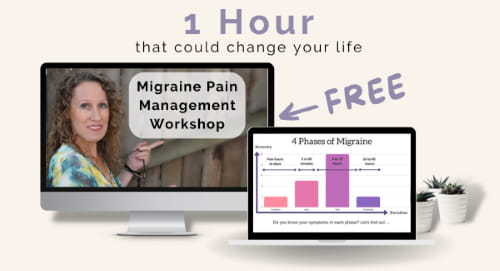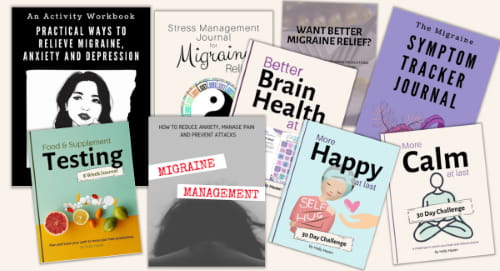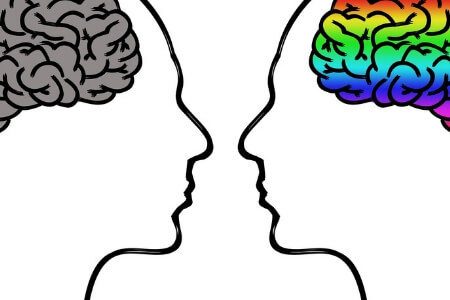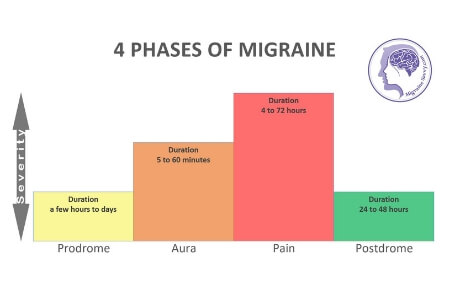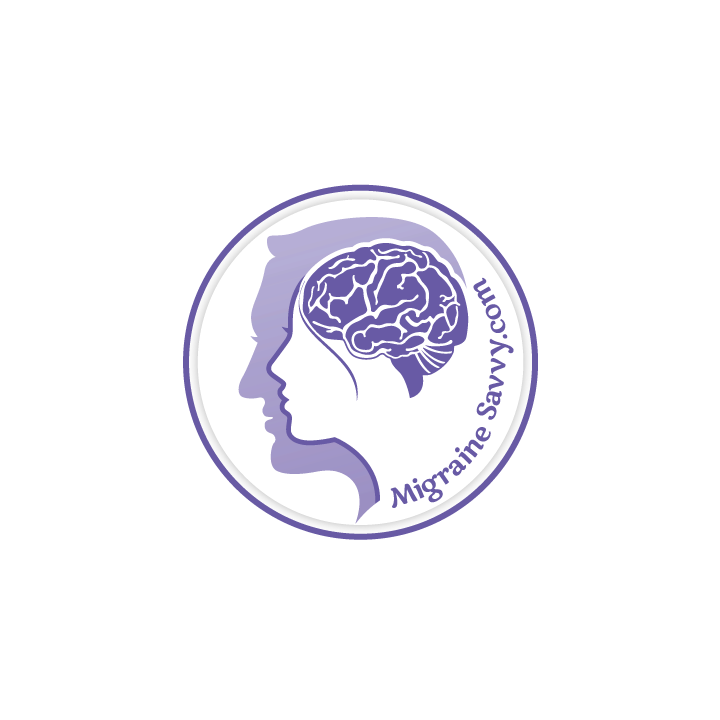- Home
- Migraine Types
- Ocular Migraines
Ocular Migraines: Causes, Symptoms & Treatment Tips

10 top tips to deal with them
What are the causes of ocular migraines? Expert's aren't sure! Here are some tips to help you deal with ocular migraines and the symptoms.
With my first migraine the eye pain was excruciating and then came vomiting. I didn't even notice any other symptoms. It all took me quite by surprise!
My #1 Choice in Magnesium Supplementation
This classification of migraine is common if you are a woman, or under the age of forty and have a history of migraines.
Just so you know right off the bat, they are generally considered harmless.
They may be very painful and may cause temporary blindness in one eye, flashing lights or blind spots in your field of vision. You might also experience severe light sensitivity and nausea.
Other names for these migraines include retinal migraines, optical migraines, monocular migraines or opthalmic migraines.
This type of migraine can get confused with, or used as a synonym for, the more serious condition called 'retinal migraine' where there may be permanent damage. This is a rare condition.
Causes...
Ocular or ophthalmic migraines originate in the brain.
They cause visual symptoms because they affect the visual cortex, the part of the brain that is responsible for our sight.
Experts aren’t really sure about what causes ocular migraines but here are some current theories according to WebMD:
- Having a spasm in blood vessels in the retina, the delicate lining in the back of the eye.
- Changes that spread across the nerve cells in the retina. [2]
There is a higher risk of having permanent loss of vision and increased risk of stroke for you as a migraine sufferer.
Symptoms...
First - Know What Symptoms To Watch For
These symptoms are also considered part of the migraine aura that accompanies a full blown migraine attack. You might just experience these symptoms without the pain in this class of migraine.
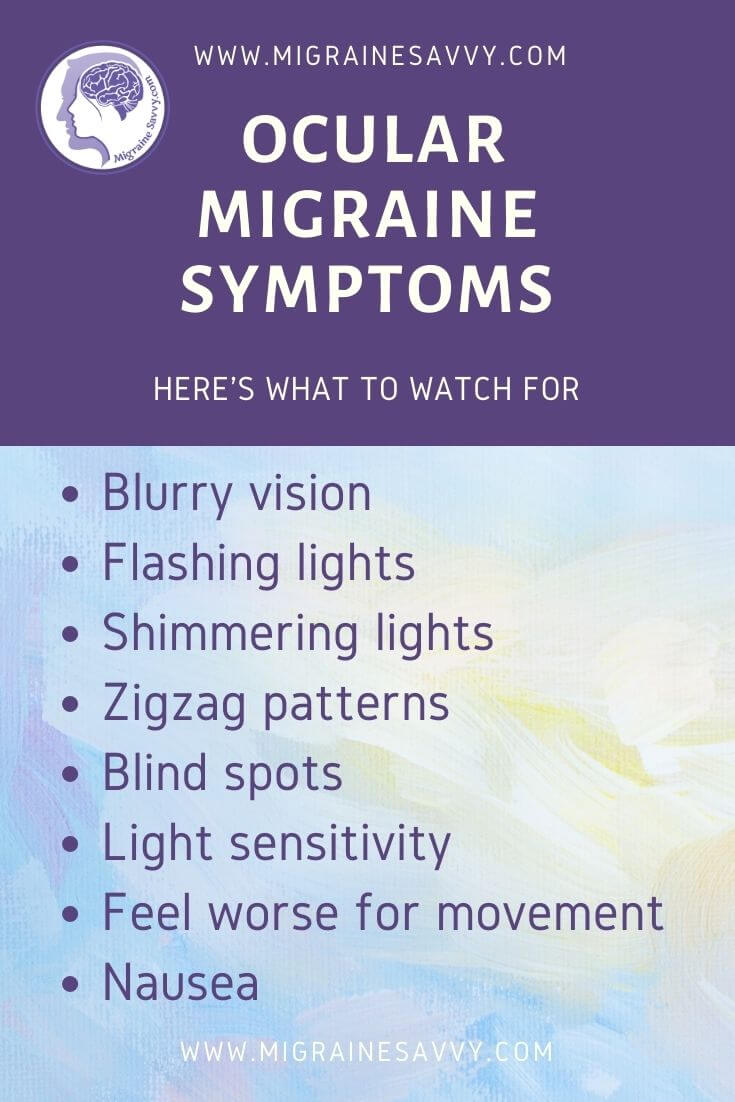
- A change in vision or blurry vision
- Flashing or shimmering lights
- Zigzag patterns
- Blind spots
- Blindness... on one side
- Light sensitivity
- Throb or pulsate
- Feels worse with movement
- Nausea or vomiting
And most importantly:
- One eye only (but can affect both)
- Temporary... should self resolve without medication within 20 - 30 minutes
- No headache
I see orange and black dots floating through the air! And the carpet moves by itself. Shimmering lights, blurry vision, loss of vision, I get it all at different times during an attack.
These symptoms can last from just a few minutes to half an hour, or longer. They can last up to two days for me. If your symptoms last longer than an hour, please arrange to see your doctor. You can read more about ocular migraine symptoms here.
Don't wait too long. If you think
you may be experiencing ocular migraines, please see your doctor right away. Many other serious health conditions share some of the same main
symptoms. You can start by taking notes asap.
Create a plan...
Write Down Your Symptoms
You will need to keep a log of your symptoms with details of when they occur. It's best to write it all down at the time, if you can see, so you don’t forget the details.
I have designed a symptom tracker that's in my eCourse - Module 4 - Lesson 1 - Creating Your Pain Management Plan. You can print out the migraine diary now to help too...
Click here to download and print the PDF for the migraine diary.
Dr. Charles Slonim, who specializes in vision, says to “jot down the day and time of occurrence, length of the episode and all of the symptoms you experienced. Check your vision in each eye individually — in other words, cover one eye at a time with your hand and note any symptoms in your uncovered eye." [1]
Record day, time and length of symptoms.
Check each eye individually.
Recall what you did an hour ago.
"Try to remember what you experienced during the hour before the episode. Some examples would be an argument with someone, heavy exercise or a stressful moment at work.”
Have this on hand to review with your doctor.
It will also help you find out if there is a pattern of triggers that relate to the attacks. Avoiding these triggers may reduce the frequency of your migraine attacks.
Now that you have ruled out more serious issues with your physician and have been diagnosed with ocular migraine, here are some tips that can help you deal with them when they
occur.

Top Tips To Deal With Ocular Migraines
Take Your Migraine Medication ASAP
One of the best tips you can use to deal with these migraines is to take your migraine medication quickly when the very first symptoms occur. You will hear me repeat this a lot – timing is everything.
Some of the first symptoms often include blind spots, zig zag patterns or flashing lights in your vision.
If you have been prescribed migraine medication, take it right away to prevent your symptoms from worsening.
Taking your medication quickly may help to prevent the severe pain that often occurs after the preliminary symptoms.
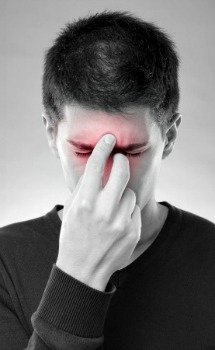 Medication Could Help
Medication Could HelpSome of the common medications prescribed to treat or prevent ocular migraines include: Topamax, Elavil, Depakote, and certain beta blockers. In some cases, your doctor may recommend that you take aspirin regularly or when a migraine occurs to help relieve the symptoms.
Protect Your Eyes from Light Exposure
In many cases, light exposure is known to trigger these visual migraines. To avoid this, try to keep your eyes protected from light exposure, which can be done by wearing sunglasses, in particular, polarized sunglasses.
There are special FL41 tinted glasses designed just for migraines: Axon Optics and Theraspecs.
If you have already noticed the first symptoms of the attack, try lying down in a dark room or at least shut your eyes to block out the light for a short period of time.
Only wear your polarized sunglasses outside to block all wavelengths of light. Don't wear them inside. Wear your FL41 tinted lenses inside to block out harmful light (blue seems more bothersome in most cases). AND keep the lenses light in color so as not to increase light sensitivity. You should be able to see your eye through the lenses. [3]
Sunglasses for outside use and FL41 for inside use. Don't wear sunglasses indoors and risk increased light sensitivity.
Stay Calm and Avoid Stress
While it can feel stressful when you notice the warning signs of an ocular migraine, it’s important to stay calm and avoid stress. If you let the symptoms upset you, the stress may make the symptoms even worse and result in adding pain to the episode.
Work to recognize and learn the early warning signs of ocular migraines so you know how to relax until the symptoms subside.
Remember, emotional and physical stress will only make any migraine worse. In fact, stress is known to trigger migraines. If you need help staying calm, try learning relaxation skills, such as progressive muscle relaxation or deep breathing techniques.
When I learned about timing and reducing stress - and learned it properly - that's when I got relief. Get my book Migraine Management.
Rest After An Attack
After dealing with any migraine, it is a good idea to rest for a couple hours if possible. If you can, try getting a couple hours of sleep.
Sleeping can help you to recuperate from the symptoms that accompany an ocular migraine.
Combining rest with these tips above can help you eliminate the migraine completely so you avoid experiencing another occurrence repeating so soon after the first.
Let's Recap...
- Know what symptoms to watch for.
- See your doctor right away to rule out more serious issues.
- Create a plan: write down your symptoms.
- Keep a log - record day, time and length of symptoms. Check each eye individually. Recall what you did an hour ago.
- Take your migraine medication asap.
- Protect your eyes from light exposure.
- Stay calm and avoid stress.
- Rest after an attack.
- Read and educate yourself on your diagnosis.
- Set up a good support system.
More Practical Ways To Cope With Ocular Migraines
The experts say the best way to cope with and prevent a migraine is to combine the traditional approach, medications, with alternative approaches. Being proactive is a wise choice. It's my choice.
If your migraines are severe and chronic I would also suggest:
- learning more stress reduction techniques from my course - Meditations and Energetic Healing for Migraine Sufferers: Heal From The Inside Out
- enrolling for free in my migraine pain management course. Module 2 covers many aspects of long term pain management.
The numerous impacts that migraines cause warrants having some support just for yourself.
Until next time, be well and be pain free.
Ready to take the next step?
Choose the next step that fits where you are right now.
MIGRAINE TYPES Related Articles
References:
1. Heiting, Gary OD. (2015) Ocular Migraines. [Online] Available: http://www.allaboutvision.com/conditions/ocular-migraine.htm
2. Boxer-Wachler, B.S. MD for Web MD (2016) Ocular Migraine Basics. [Online] Available: http://www.webmd.com/migraines-headaches/guide/ocular-migraine-basics
3. Digre, K. MD (2018) Migraine World Summit. Available [Online] at: https://www.migrainesavvy.com/summit


